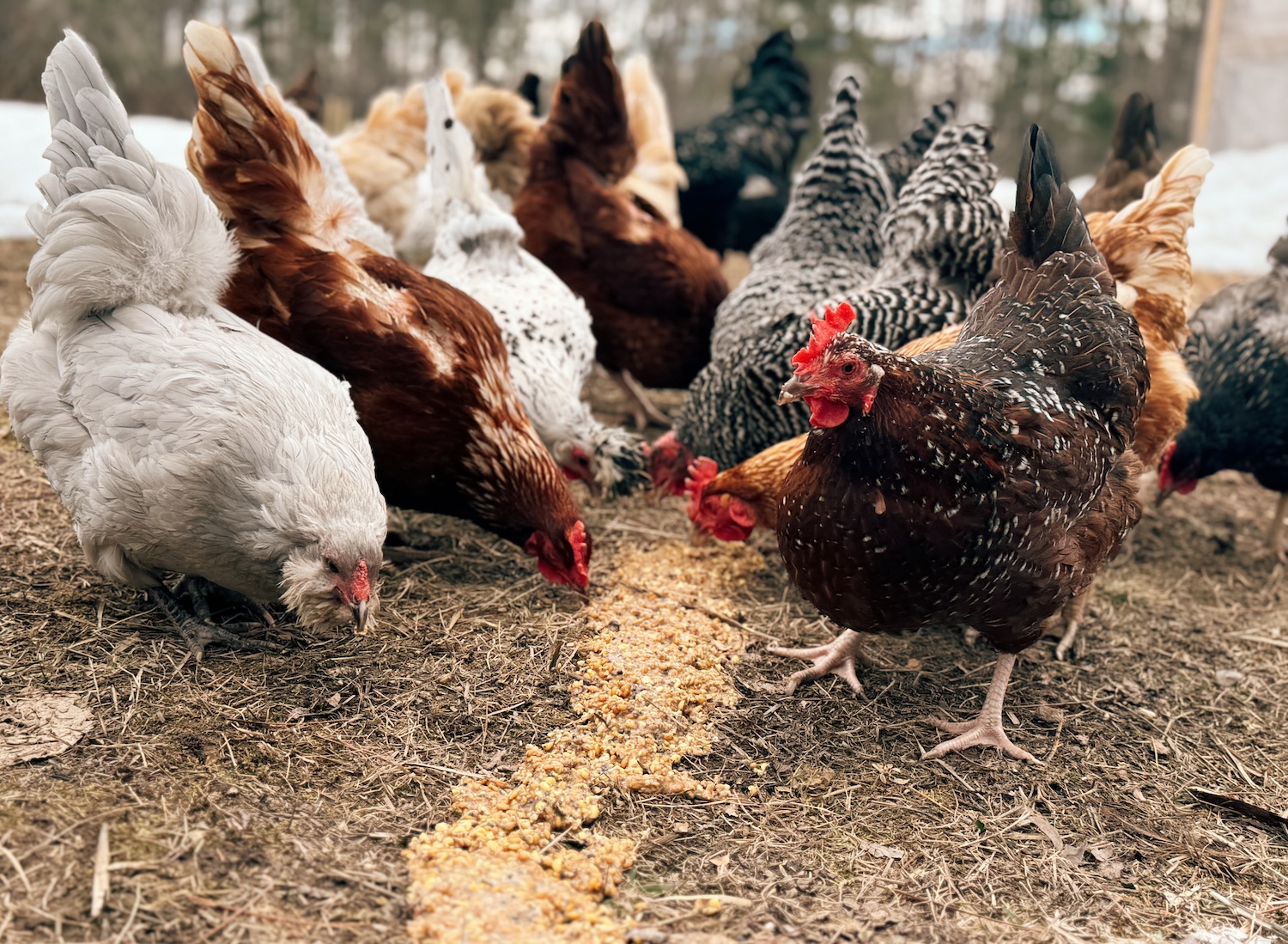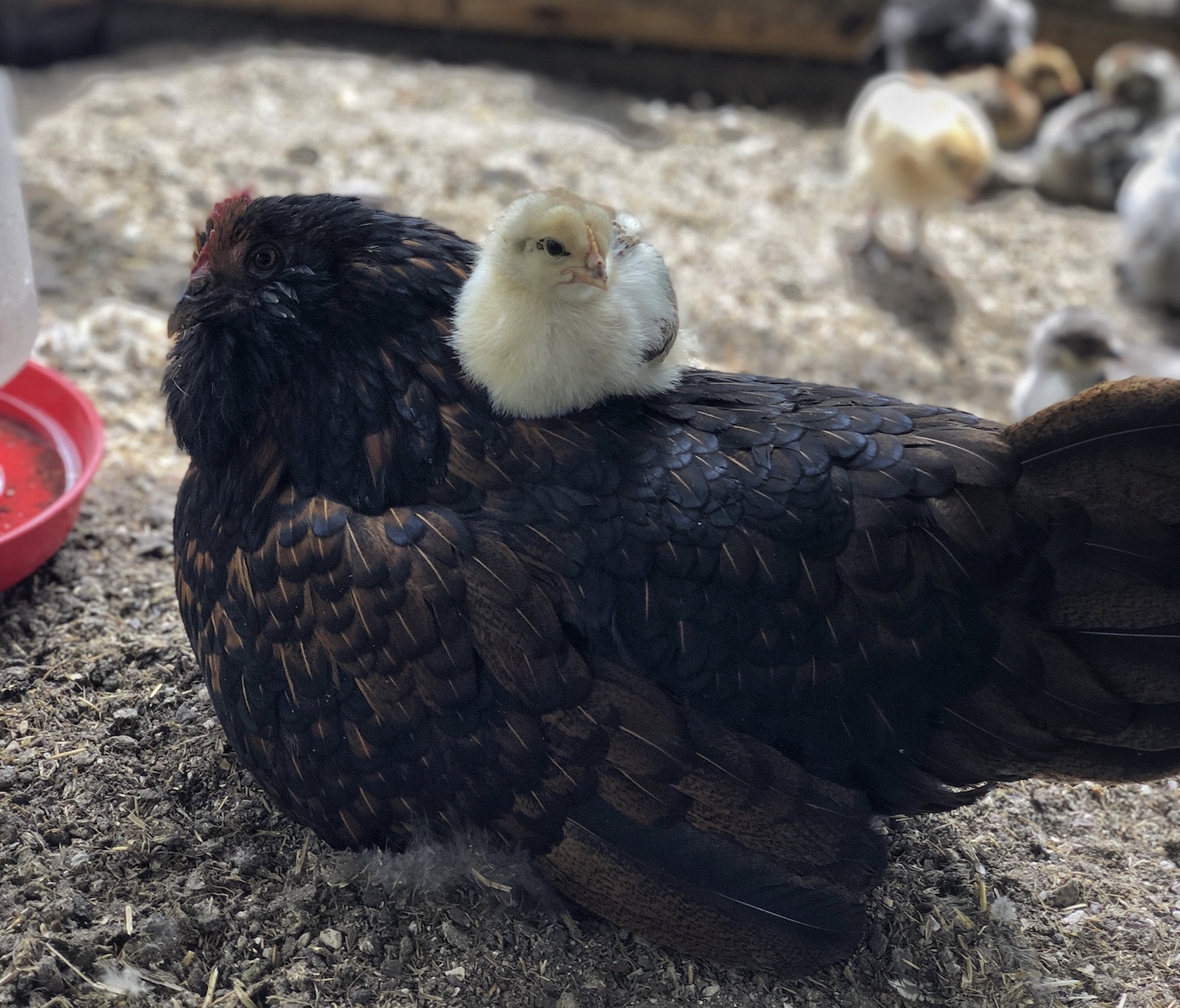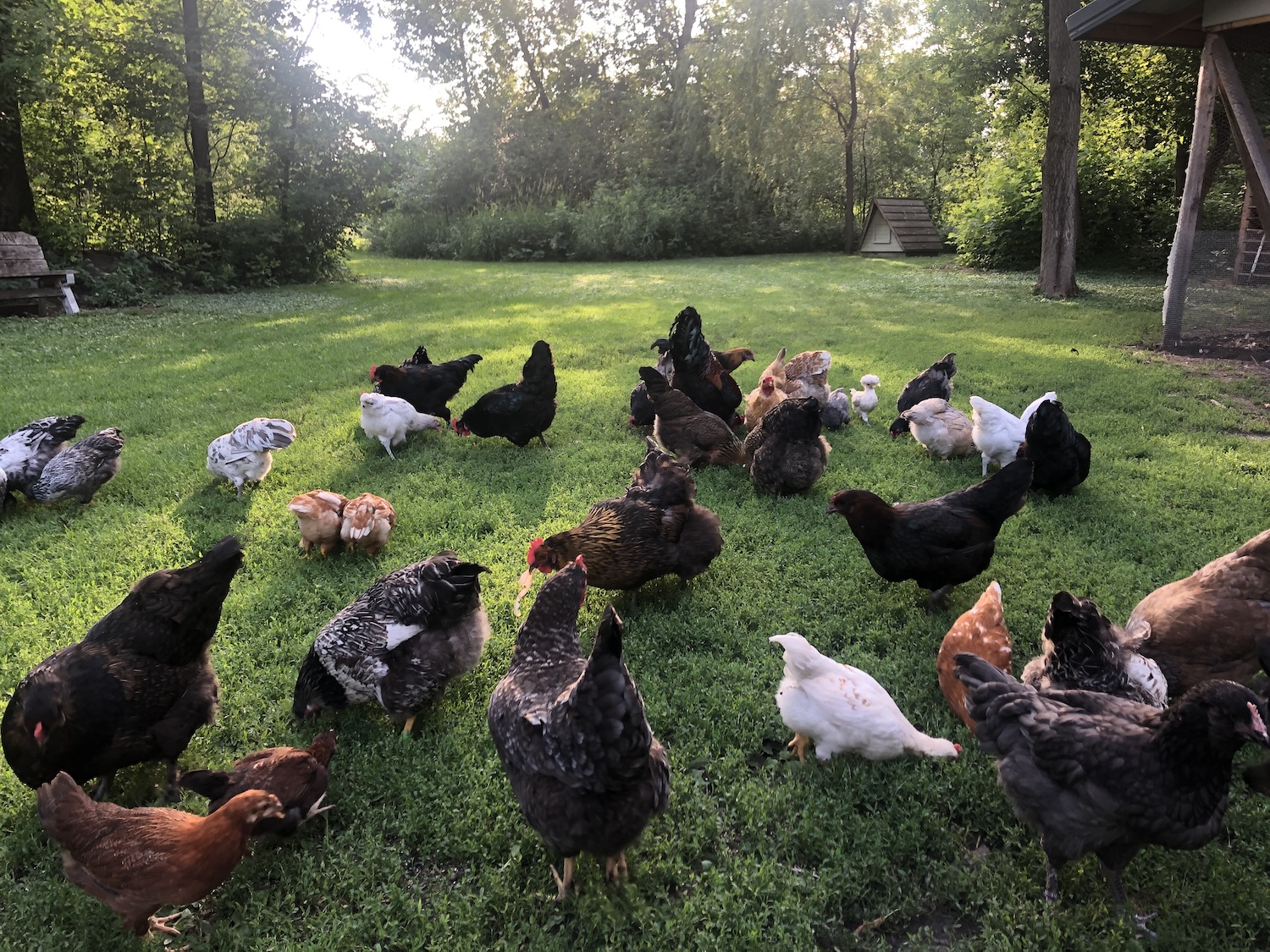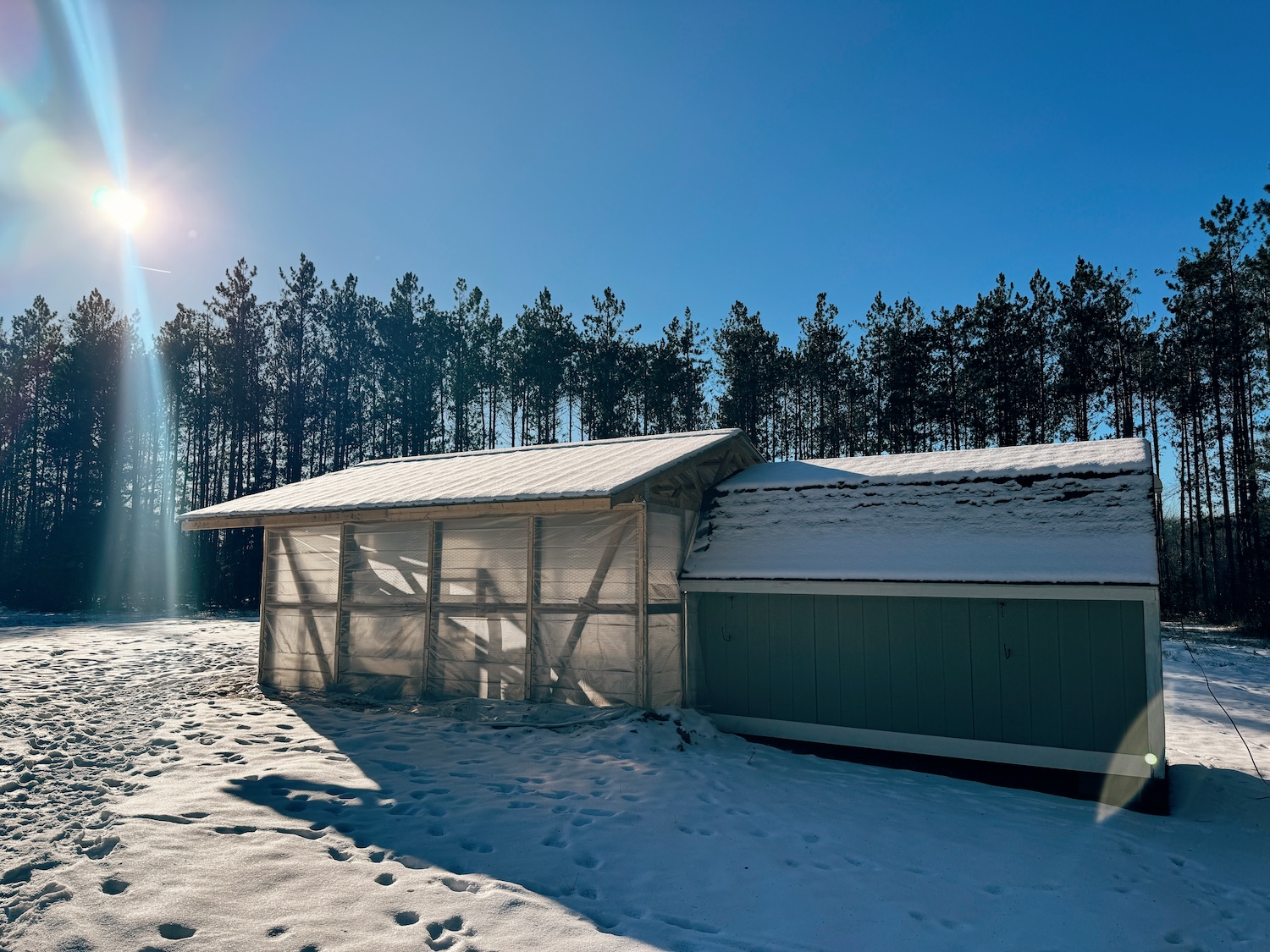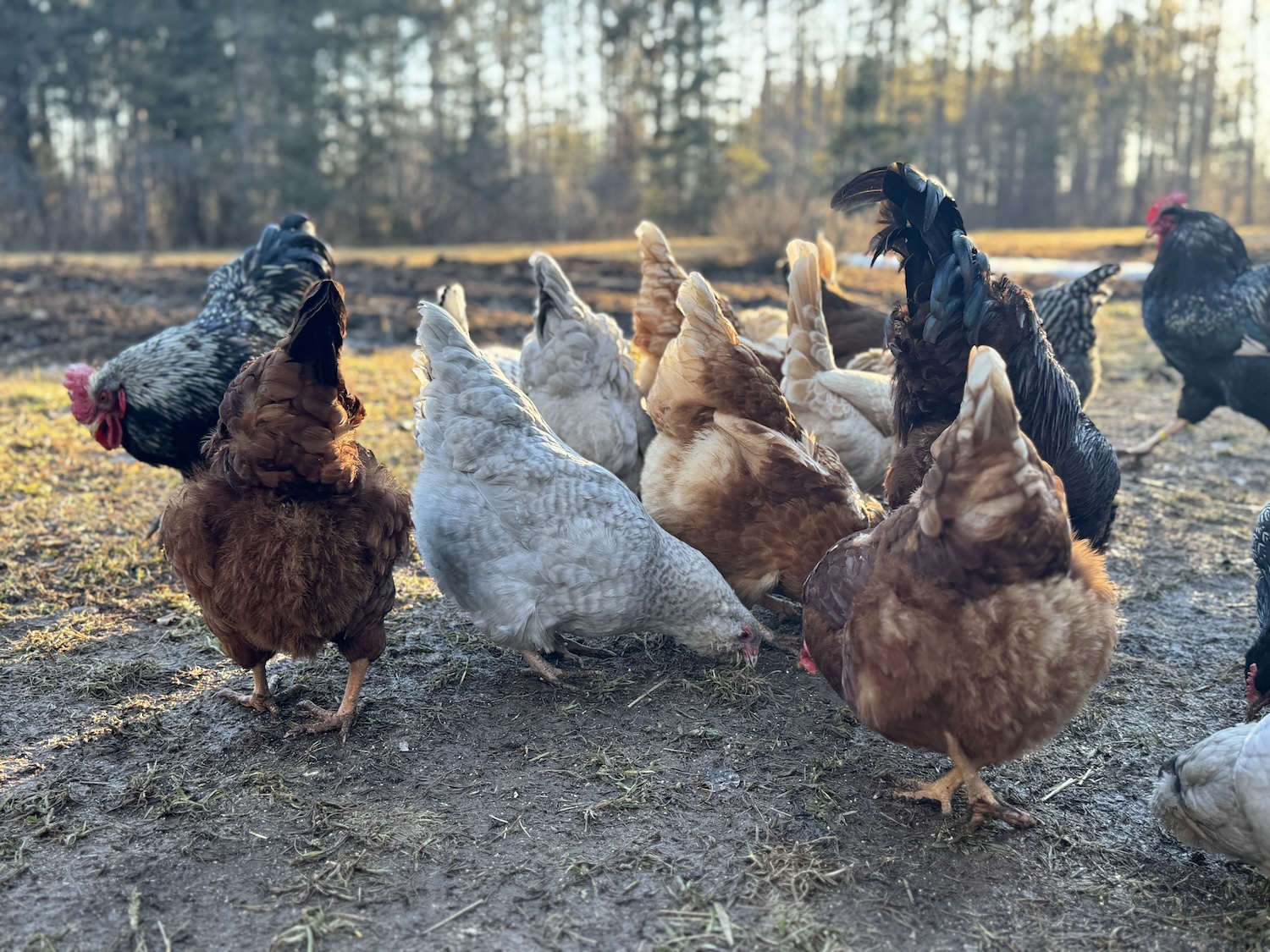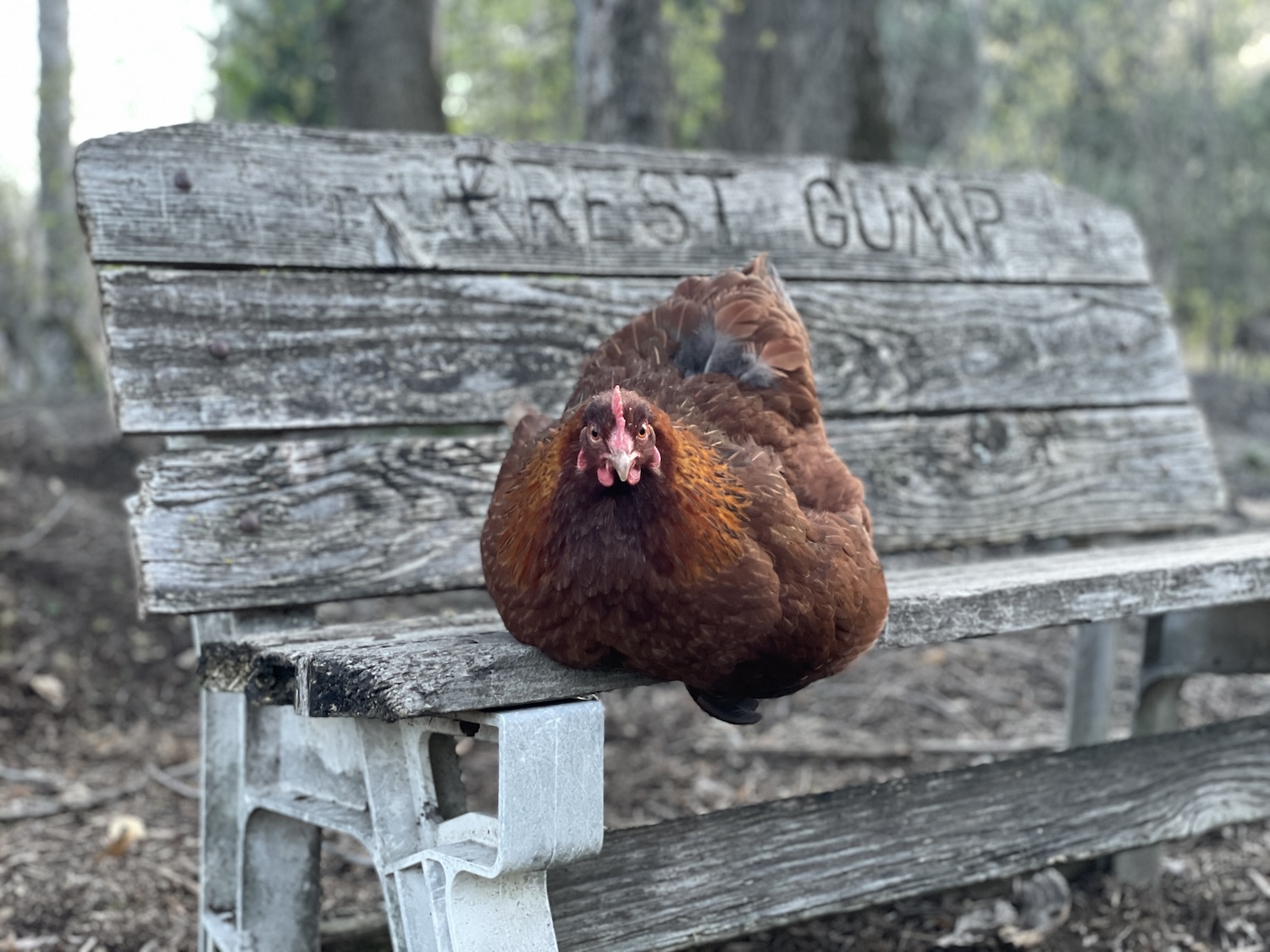So, how long do chickens live, anyway? You might be surprised by the answer! While chickens are prey animals and are naturally predisposed to a shorter lifespan, they can enjoy a long and fulfilling life if given the chance!
Numerous factors such as genetics, breed, environmental conditions, predator threats, diet, and daily care will play a role in how long a chicken will live. We’ll cover each of these in this article so you can know what to expect from your flock and help them live a long, healthy life!
I’ve been raising chickens since 2014 and those senior hens always win my heart over. They become the heartbeat of your homestead and often have the sassiest personalities – love them!
*Disclosure: This post may contain affiliate links to products (including Amazon). I’ll earn a small commission if you make a purchase through my link, at no additional cost to you! Regardless, I only link to products that I personally use on our homestead or believe in.
How Long Do Chickens Live?
Let’s just jump right into it, shall we? It’s hard to give a precise answer because there are a lot of factors involved (just like humans!), but generally, you can expect a chicken to live 5-10 years if cared for properly.
Some small breeds (bantams, polish, silkies, etc.) may live longer than 10 years whereas giant breeds, meat birds, and those bred for high egg production may live less than 5 years.
The world record for the oldest chicken is Peanut, who lived to be 21 years and 238 days old! WOW! So, it certainly is possible for chickens to live quite a long life, but the average of 5-10 years still stands.
How Long Do Chickens Lay Eggs?
Humans outlive their childbearing years by quite a bit, and the same goes for chickens. Just because a hen has stopped laying eggs doesn’t mean that she doesn’t still have some great years ahead of her!
Egg laying starts off strong for the first 2-3 years, but then starts to taper off from there. You can still expect some eggs in the years to come, but not as frequently.
My oldest hen made it to 9 years old and she was still laying before she finally passed from a respiratory issue. She was only laying 15-20 eggs a year at that point, but she was a reliable broody and a wonderful mother until the end. We miss her!
Factors Influencing Chicken Lifespan
Chicken breeds
While some breeds are known for their robust health and long lifespan, others may be more susceptible to certain diseases or health issues that can shorten their life expectancy.
Longest-living chicken breeds
- Small breeds: appenzellar spitzhauben, salmon favorelles, silkies, crevecoeurs, legbars, and polish.
- Landrace breeds: Icelandic, sumatra, Swedish flower hens, fayoumi, and hedemoras.
Shortest-living chicken breeds
- High production breeds: ISA browns, leghorns, cinnamon hybrids, production red, amberlink, and red stars.
- Large breeds: brahmas, naked necks, black giants, wyandottes, orpingtons, cochins, and barred rocks.
- Meat birds: cornish cross, rangers, cornish game hens, and ginger broilers.
Genetics
While some breeds may be on the “longest-living breeds” list, genetics still play a role. If a hen comes from a line of chooks with poor genetics, she likely won’t live as long as one from a strong line. That’s why it’s so important to do your research and find a good NPIP breeder.
Environment and living conditions
This one is pretty obvious, but if a chicken is in an environment that is stressful, full of predators, or unsanitary, it’ll impact their lifespan negatively. Not sure how to do that? Check out my article Inside a Chicken Coop: 5 Required Items (and 3 to AVOID) to ensure that your coop is set up properly!
If you live in a cold climate like I do, properly winterizing your chicken coop is also essential to prevent frostbite. Using fresh, absorbent chicken bedding and engaging in regular coop cleanouts is a good practice no matter the time of year.
While I’m a huge fan of letting my chickens forage freely on our property, it comes with a risk of predators. It’s impossible to protect them 100% of the time, but there are some things you can do to help!
- Set up wavy tube guy by where they like to forage – my favorite!
- Install an automatic chicken coop door
- Keep a rooster around to guard his flock!
- Have a radio playing music or talk radio nearby
- Set up electric poultry netting
- Consider a livestock guardian dog
Nutrition and diet
Always make sure that you’re using a well-balanced feed that is appropriate for the age of your chickens. One of my favorites is Scratch and Peck (use my code homesteadingrd15 for 15% off!).
While you can technically mix your own feed, I highly recommend doing some thorough research before doing so. I’ve heard one too many horror stories of chickens ending up with deficiencies from an unbalanced mix.
Allowing chickens to forage and/or giving them some extra treats from the garden is another great way to give them a boost in nutrition. Some of their favorites are things include tomatoes, chickweed, ground cherries, and of course worms for protein! However, make sure to read my list of What Chickens Should Not Eat to ensure that they don’t get into anything toxic.
Lastly, make sure your chickens are always given grit if they are consuming a whole grain feed, foraging, or enjoying any leftover veggie snacks. Chickens don’t have teeth, so grit is essential so that they can “chew” their food within their gizzard. Without proper grit, they won’t be able to digest their food properly.
Health and disease
Signs of Aging in Chickens
As your chickens start to age, it’s important to keep an eye out for some changes that might occur. You might notice a variety of different physical, behavioral, and health changes over time.
Physical changes
Chickens change in their physical appearance, just like humans do! While they don’t necessarily get wrinkly and turn grey, they have their own unique changes:
- Their breast bone becomes rigid, rather than flexible
- Their skin becomes thick and tough, rather than thin and semi-translucent
- They’ll feel heavier overall
- A tight vent (no longer laying regularly)
- A worn beak
- Dull feathers, rather than vibrant and glossy
Behavioral changes
Chickens slow down a bit as they age, just like we do! I notice that my oldest hens are usually the first ones back into the coop in the early evening, and they are the last ones out in the morning. They like a few extra hours of downtime!
I’ve also noticed that their adventurous spirit can go in one of two directions. One is that they don’t mind wandering around alone to get some space from the youngsters and the roosters (I get it, hunny!). The second direction is that the elderly chickens stay pretty close to home and under the protection of their rooster – they’ve gotten wiser in their older years!
Health issues to watch for
As chickens age, they’ll naturally be more susceptible to disease. Engage in routine health examinations to look for mites, lice, bumblefoot, breathing difficulties, crop impaction, and anything else that looks abnormal.
If your hens are on the heavier side, they are at increased risk for prolapse in their abdominal wall (a different kind than vent prolapse – that can certainly happen, too!). You’ll notice a heavy and bulging lower abdomen. I’ve had this happen to a few of my bigger hens and while they still were still fairly healthy, it was noticeable.
Lastly, you might notice that they are spending less time in the laying box. As hens age, they lay fewer eggs, and some stop entirely. You may also notice more egg abnormalities like wrinkled eggs, shell-less eggs, and fairy eggs. Eggs from a senior hen may also not be great candidates for hatching, so I’d keep them out of the incubator.
Other Chicken Articles You’ll Love:
- How to Care for Chickens: A Beginner’s Guide
- 5 Protein Sources for Chickens (Especially While Molting!)
- Inside a Chicken Coop: 5 Required Items (and 3 to AVOID!)

